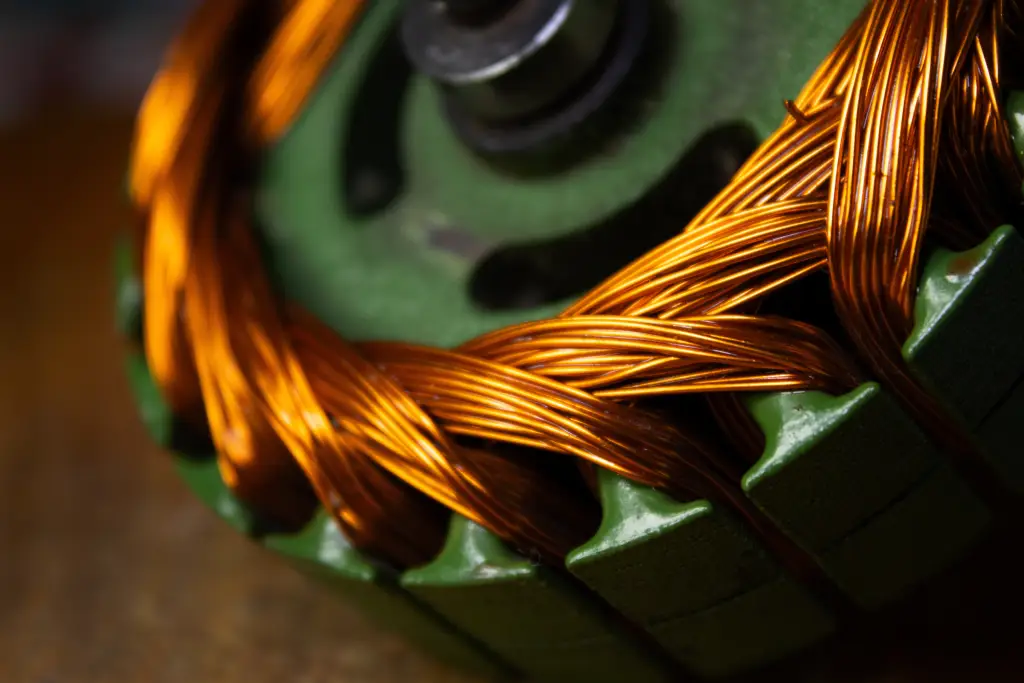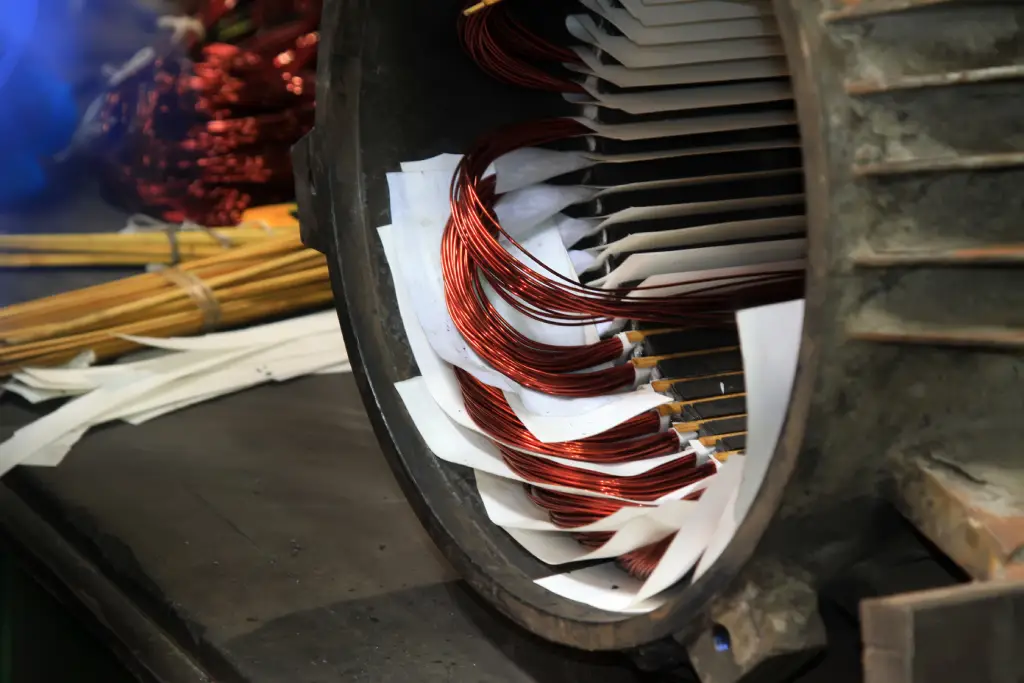Chemical compatibility in electric motors presents several challenges that can impact motor performance, reliability, and longevity. Sinotech’s custom motor designs address chemical compatibility issues from conception to production.
Some of the key challenges include:
- Corrosion: Exposure to corrosive chemicals, such as acids, alkalis, salts, and solvents, can lead to corrosion of motor components, including metal surfaces, bearings, and insulation materials. Corrosion weakens materials, degrades surfaces, and compromises the structural integrity of motor parts, ultimately leading to premature failure.
- Degradation of Insulation Materials: Chemical exposure can degrade insulation materials used in motor windings, such as varnishes, resins, and tapes. Degradation of insulation materials can result in reduced dielectric strength, increased electrical conductivity, and the risk of electrical shorts or breakdowns, leading to motor malfunctions or failures.
- Bearings and Lubricants: Chemical exposure can affect the lubrication properties of bearings and degrade lubricants used in motor bearings and mechanical components. Inadequate lubrication can lead to increased friction, wear, and heat generation, reducing bearing lifespan and causing motor inefficiency or failure.
- Seal and Gasket Integrity: Chemical exposure can compromise the integrity of seals and gaskets used to protect motor components from environmental contaminants. Degradation of seals and gaskets can result in leaks, ingress of moisture or contaminants, and loss of lubrication, leading to motor damage or failure.
- Material Compatibility: Chemical exposure can cause materials used in motor construction to swell, soften, or become brittle, affecting their mechanical properties and dimensional stability. Material compatibility issues can lead to dimensional changes, interference misfits, or misalignment of motor components, resulting in increased friction, noise, and mechanical stress.
- Environmental Factors: Environmental factors such as temperature fluctuations, humidity, and UV radiation can exacerbate chemical compatibility issues by accelerating chemical reactions, promoting material degradation, and compromising protective coatings or finishes on motor surfaces.
- Regulatory Compliance: Chemical exposure in electric motors may raise concerns regarding regulatory compliance with safety, environmental, and health regulations. Motors used in industries such as automotive, aerospace, and medical devices may be subject to stringent regulatory requirements governing chemical emissions, hazardous substances, and workplace safety.
The choice of magnet wire is critical, especially the chemical compatibility of the insulation. The “class” of wire determines the maximum operating temperature.
Addressing these challenges requires careful selection of materials, coatings, and sealing solutions that offer robust chemical resistance and compatibility with the specific chemicals encountered in the motor’s operating environment. Conducting thorough testing and analysis of materials under simulated operating conditions can help identify potential chemical compatibility issues and ensure the reliability and durability of electric motors in challenging chemical environments.
Sinotech’s Chemical Compatibility Methodology.
Working closely with its customer’s engineering team, Sinotech creates a spreadsheet of materials subject to chemical compatibility issues. The data includes the material, the functional results of potential chemical compatibility mismatches, and initial suggestions for compatible materials. Customer past experience with these issues is taken into consideration.
Next, a test plan is developed that likely includes accelerated testing in the presence of the solvents, fuels, or other chemicals to which the motor components are subjected. These tests are typically run by the customer’s labs but can be done at Sinotech.
If the motor is to be manufactured outside the U.S., consideration must be given to the availability of the compatible material in the country of manufacture. It may be necessary to find alternate sources.
The insulating papers must be chemically compatible
When electric motors are exposed to chemical substances, it’s essential to select materials that can withstand the corrosive effects of these chemicals without compromising motor performance or reliability. Here are some materials commonly used in electric motors that are resistant to chemical exposure:
- Stainless Steel:
- Applications: Stainless steel is commonly used in motor components such as shafts, fasteners, and housings, particularly in environments where corrosion resistance is critical.
- Properties: Stainless steel offers excellent resistance to a wide range of chemicals, including acids, alkalis, and organic solvents. It is highly durable and maintains its mechanical properties even in corrosive environments.
- Polytetrafluoroethylene (PTFE):
- Applications: PTFE is often used as a coating or lining material for motor components such as bearings, seals, and bushings.
- Properties: PTFE is highly resistant to chemical attacks from acids, bases, and organic solvents. It has a low coefficient of friction and offers excellent lubricity, making it ideal for applications where chemical exposure and friction are concerns.
- Polyphenylene Sulfide (PPS):
- Applications: PPS is used in motor components such as insulation materials, connectors, and encapsulation.
- Properties: PPS exhibits excellent chemical resistance to a wide range of acids, alkalis, and organic solvents. It also offers high thermal stability and mechanical strength, making it suitable for demanding applications in harsh chemical environments.
- Epoxy Resins:
- Applications: Epoxy resins are commonly used as insulating materials for motor windings and electrical components.
- Properties: Epoxy resins offer excellent resistance to chemicals, including oils, fuels, and solvents. They provide electrical insulation, mechanical strength, and protection against moisture and environmental contaminants.
- Fluoroelastomers; i.e. Viton®:
- Applications: Fluoroelastomers are used in seals, gaskets, and O-rings for motors operating in environments with exposure to fuels, oils, and aggressive chemicals.
- Properties: Fluoroelastomers exhibit exceptional chemical resistance to a wide range of fluids, including hydrocarbons, acids, and solvents. It maintains its flexibility and sealing properties even in harsh chemical environments.
- Nickel-Based Alloys:
- Applications: Nickel-based alloys such as Inconel® are used in motor components subjected to high temperatures and aggressive chemical environments.
- Properties: Nickel-based alloys offer excellent corrosion resistance and high-temperature strength, making them suitable for applications where chemical exposure and elevated temperatures are concerns.
By selecting materials such as stainless steel, PTFE, PPS, epoxy resins, fluoroelastomers, and nickel-based alloys that offer resistance to chemical exposure, Sinotech can ensure the durability, reliability, and performance of electric motors in environments where exposure to corrosive substances is unavoidable.


